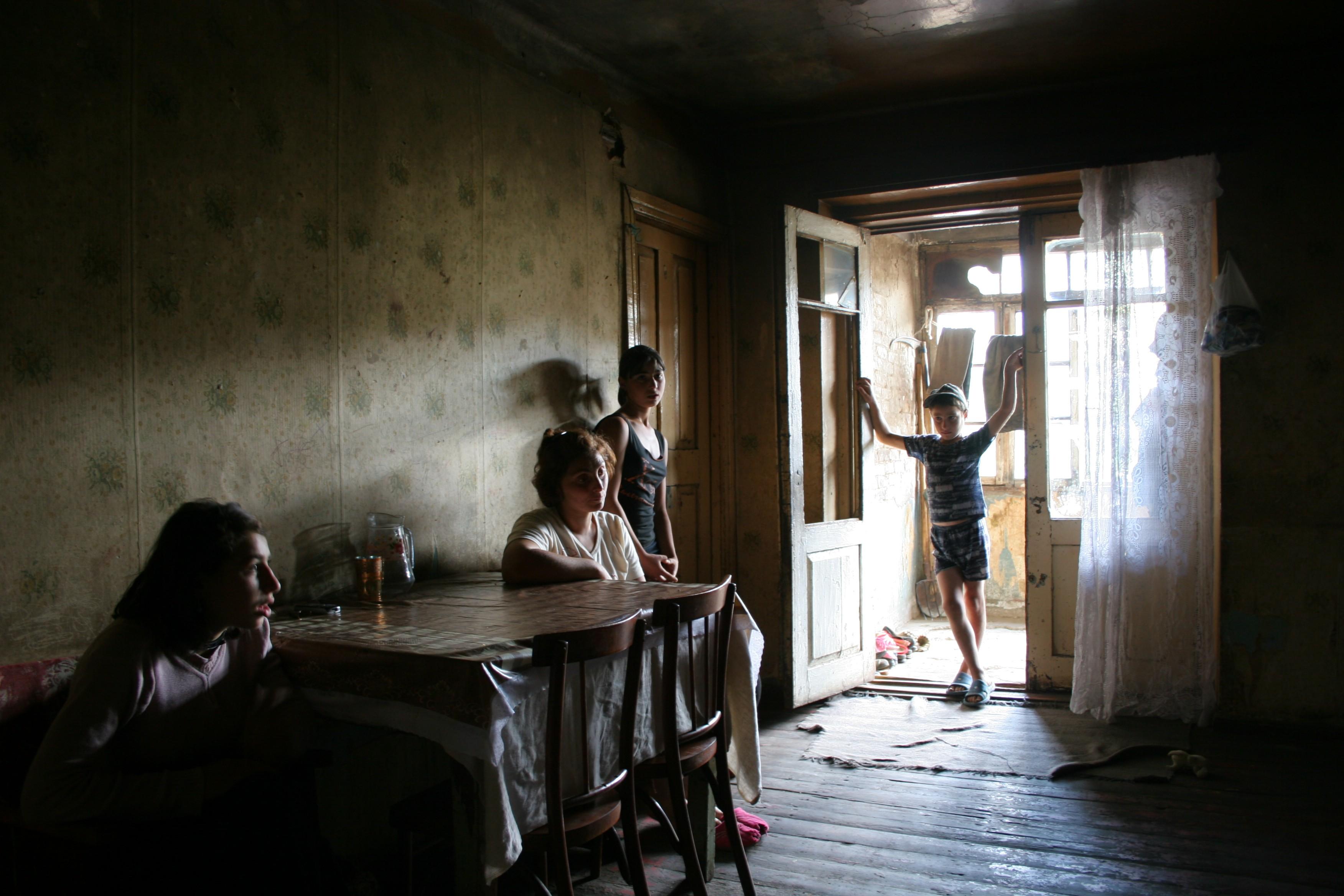
Dastakert Family Survives and Dreams Despite the Odds
The road to the town of Dastakert, some 23 kilometres south of Sisian in Armenia's Syunik Marz, is not for the faint of heart.
Not only will the ride fray your nerves but the rocky route will eat up a normal car's suspension in no time. It's best to park your car and call a local taxi to ferry you to Dastakert.
Invariably, your cabbie will be a loquacious chap who will pass himself off as a jack of all trades with a handful of professional degrees. Most likely, he will also be a stalwart supporter of this or that political party.
Dastakert, for those who don't already know, possesses the dubious distinction of being the smallest urban metropolitan community in Armenia with a population of 320.
It definitely saw better days during the Soviet period. It once boasted a busy copper-molybdenum factory.
The town went downhill after the plant closed. People moved away. Today, Dastakert resembles a town that has been evacuated due to air strikes.
Geologists have now returned and are conducting mineralogical studies. They say that the mine will reopen in the next few years.
A year ago 15 year-old Astghik fell in love with a young man from Alaverdi who was in one of the research teams. They been keeping in touch by phone ever since. Their long-term fate is inextricably tied to the fate of the mine.
Astghik lives in the only residential apartment building in town; a four story structure built decades ago.
Roudik, her father, is a refugee from Baku who resettled in Dastakert 23 years ago. He met his wife here.
Today, they have five kids and the family survives on a social assistance package of 51,000 AMD in ($140) per month. To get by, the family also collects berries in a neighbour's field and harvests grass in the higher elevations for animal forage. Neither of the parents holds down a steady job.
Roudik says everyday is different but that they manage to work at this or that to put food on the table.
Astghik and her two sisters, Lilit and Elmira, dream of leaving Dastakert for Yerevan. I ask Astghik what she will do in Yerevan.
"The main thing is that I won't be fighting with them," she answers with a smile and points to her sisters.
The girls stay as busy as they can doing their chores, both in the house and in the garden, and taking care of Boris, their baby brother. After that, all that's left is to watch TV soap operas. (See: Dastakert; A Photo Essay)
The small apartment is neat and tidy even though the walls and ceilings are rough and unfinished.
A small TV sits atop a cabinet that doubles as a fridge. When I ask why they don't own a regular refrigerator, Roudik laughs, "We don't have anything to put inside."
The family eats what they grow in the garden. The milk from their one cow isn't even enough for the kids.
Grishik, a starry-eyed third grader dreams of becoming a doctor and helping others.
Boris, his baby brother who is almost two, underwent major surgery when he was just four days old. It was then that Grishik decided to become a physician. Boris now walks like any other 2 year-old.
The four kids will soon start school. Roudik tells me that they don't have the money to buy them decent clothes or school supplies.
"In Baku I had work and lived a normal life. Here, there's nothing. If the mine opens hopefully we'll have work. But who can say if it'll be permanent. At least I know we get the social assistance every month."
 Videos
Videos Photos
Photos
Comments (1)
Write a comment